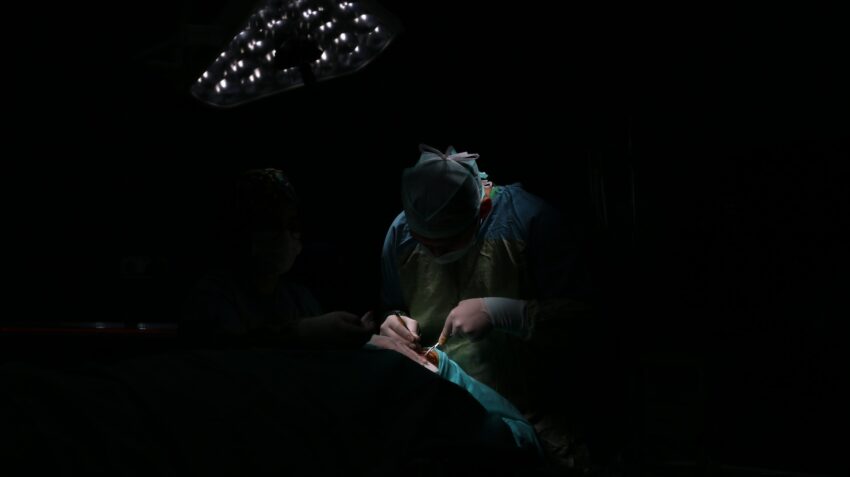What Do Plastic Surgeons Do? is an enlightening and informative read for anyone interested in cosmetic surgery. While plastic surgery is not a highly creative area, it is a discipline that combines the science of beauty with the art of surgery. The field has meager failure rates and tolerable risk profiles. Here are a few things you should know about a plastic surgeon’s job.
Surgery
Plastic surgeons are doctors who perform surgery on the body. For example, they perform surgery on the lungs, heart, and bones and reconstructive surgery to fix physical defects caused by disease or injury. Many of these surgeons specialize in one area of the body. While most plastic surgeons practice general surgery, specialty areas also focus on specialized care. For example, some surgeons focus on breast reconstruction and other procedures that affect the breast or groin.
During this surgery, the nasal bone and cartilage are removed or reshaped. Then, the surgeon rearranges cartilage and bone beneath the skin. After the surgery, a temporary nasal splint is placed outside the nose to hold the new shape. After surgery, some packing may be placed inside the nose to stabilize the septum. They will remove this within a week.
Licensure
The Board of Plastic Surgery is responsible for granting licenses to practicing plastic surgeons in the U.S. The American Board of Plastic Surgery maintains standards for licensing plastic surgeons. These standards are not intended to impede the practice of certified plastic surgeons but rather to ensure that plastic surgeons meet the highest standards of care. Physicians with double-board certification have completed years of specialized education and training.
Qualifications to become a plastic surgeon vary from state to state. Physicians must complete at least six years of post-medical school residency and a fellowship to practice. Additionally, they must pass an oral and written examination to maintain their licenses.
In some states, a plastic surgeon must be a member of the American Society of Plastic Surgeons. Additionally, a surgeon must meet a strict code of ethics. This is being done by plastic surgeons in different states, like the different plastic surgeons in Raleigh North Carolina.
Communication Skills
Communication skills are a crucial component of the surgeon-patient relationship among the six core competencies of the Accreditation Council for Graduate Medical Education. Poor communication skills may lead to clinical errors, litigation, and patient satisfaction. To ensure surgeons develop these skills, residency programs should document formal processes to assess their communication skills.
Currently, surgical residents receive limited training in the art of patient-centered communication. But a new study has found that these residents are more likely to improve their patient-centered communication skills after spending time with patients.
Besides demonstrating exceptional technical skills, surgeons must have excellent communication skills. They must be able to explain complicated medical procedures to patients and staff and provide reassurance and emotional support.
In addition to excellent interpersonal skills, plastic surgeons specializing in blepharoplasty and other procedures must possess a high degree of attention to detail, interpret non-verbal cues and be comfortable dealing with patients’ anxieties and emotions. Moreover, they must also be skilled at working in a team. Before conducting any procedures, plastic surgeons should schedule a consultation with patients to explain the process to them.
Areas of Practice
There are many subspecialties of plastic surgery, and the area of practice of a plastic surgeons will depend on the type of work they intend to do. For example, they may choose to work with burn patients with congenital abnormalities.
They may also focus on aesthetic surgery, which deals with structures with undesirable forms. In addition, a plastic surgeon’s unique skills and knowledge are required in replantation and excisional surgery, as well as the management of complex wounds.
A plastic surgeon’s work may combine inpatient and outpatient procedures. Their areas of practice may also include research and education. They may also choose to practice in a single specialty or the entire spectrum of plastic surgery. Some plastic surgeons even become active in academic research, which is increasingly popular at medical institutions worldwide. If this sounds like the perfect job, read on to learn more about the different practice areas and what they involve.
Education
As plastic surgery continues to grow in scope and complexity, education for surgeons needs to keep pace. In addition to didactic teaching, the field now requires extensive knowledge of business and practice management skills. With work-hour restrictions, it’s challenging to ensure that residents receive the breadth and depth of education they need to succeed in their careers. In addition, faculty may lack experience in business and practice management, and educational models may not parallel those of the real world.
The Aesthetic Society provides an online educational program to develop leadership and teamwork skills. These experiences are not often found in formal postgraduate medical education. Many plastic surgery companies provide educational materials and services for trainees.
Some of these programs even offer leadership opportunities to plastic surgeons, which can help them improve business practices. The goal is to ensure that surgeons are better equipped to serve their communities. There are many benefits to participating in these training programs.

